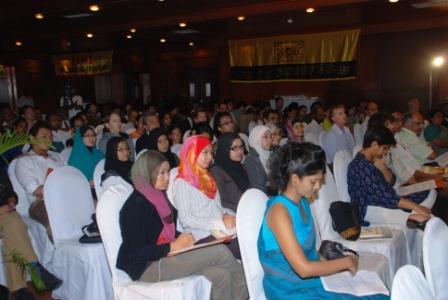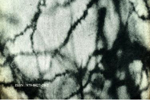
ISVS: An Introduction
International Seminar on Vernacular Settlements (ISVS)
International Society for the Study of Vernacular Settlements (ISVS)
International Studies on Vernacular Settlements (ISVS)

The Beginnings of a Movement
In 1999, the University of Depok in Indonesia launched a seminar titled the international seminar on vernacular settlements. The seminar was intended to bring together scholars who were looking into numerous aspects of the relationships between built-form and culture. Inspired by the seminal book House Form and Culture by Amos Rapoport, and awed by the variety of house forms that had come into being among various tribal communities in Indonesia, the organizers led by Prof. Gunawan Tjahjono, the then professor of architecture of the University of Indonesia intended to explore the multi-faceted manifestations of vernacular beliefs and practices in the buildings and settlements they inhabited. Since then, ISVS has become a movement having organized 13 conferences across the world.

The Seminar Going Around the World
After having had three seminars; one at the University of Indonesia again in 2004 and one at the Catholic University of Parahyangan in Bandung in 2006, it truly became an international one when it was hosted by the CEPT University, Ahmadabad, in India in 2008. Prof. Pratyush Shanker from Ahmadabad became its secretary spearheading the movement. Subsequently, it has held seminars in Sri Lanka (2010), in Cyprus (2012), in Turkey (2014), in Makassar in Indonesia (2016), Bali, Indonesia (2018), Bhopal in India (2020), Vadodara in India (2022) and Silpakorn, Thailand (2023). TDTU University in Vietnam will host the 2024-2025 event.

The International Society for the Study of Vernacular Settlements
In 2013, the International Society for the Study of Vernacular Settlements was established with all the participants of the previous seminars and every new seminar becoming de-facto members of the society. Dr. Ranjith Dayaratne, from Sri Lanka who was attending all the seminars from its inception was instrumental in organizing the International Society for the Study of Vernacular Settlements (ISVS) in 2015 which has also initiated the publication of the ISVS e-journal. Dr. Ranjith Dayaratne is therefore also its life-time president. ISVS is currently operating under the Asian School of Knowledge (ASK) headed by Dr. Ranjith Dayaratne.

Redefining Vernacular
The definition of Vernacular has been revisited since the keynote Speaker, Dr. Peter Kellett from Newcastle, UK, delivered a speech arguing for the inclusion of contemporary settlements as being part of the vernacular, deviating from the narrow definition of vernacular as being things of the past, the rural settlements or the tribal villages in remote places of the earth. ISVS thus promotes examining all vernacular practices from the historical vernacular to the contemporary modern world.

The Variety of Vernacular Studies
The outcomes have been profoundly illuminating the nuances of meanings everyday communities ascribe to their living spaces and settlements and how they are fashioned by religious and personal beliefs as much as climate, culture, technologies at hand and the politics of existence. The wide variety of these studies examine the geo-physical contexts, tribal, ideological and religious beliefs, cultural variations, material manifestations and symbolic representations.

Inspirations from the Giants
Undeniably, these studies have been inspired by the book house forms and culture of Amos Rapoport and the nuanced ideas presented in its thesis, as much as other erudite scholars such as Paul Oliver who published the Encyclopedia of the Vernacular Architecture of the World, among many others. In so doing, these studies have reached people across the world, across geographical and linguistic boundaries as well as the multi-faceted social, cultural and political contexts inspiring research that examine the nuances of meanings that manifest through people-place transactions in the lived-world. Simultaneously, they also unravel new theoretical ideas that have surfaced through the investigations and the discussions.

A Tribute to Prof. Gunawan Tjahjono and Others
This movement pays its tribute to Prof. Gunawan Tjahjono, one time professor of architecture of the University of Indonesia, who had the vision to start that small seminar in 1999, and the fellow advisors and researchers who have actively carried its mission through to its gigantic accomplishments to-date and continue to do so.
For any inquiries, please contact Ranjith Dayaratne at ranjithd1@hotmail.com or ranjithdayaratne@gmail.com